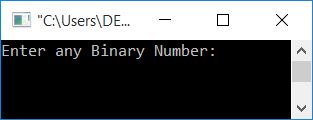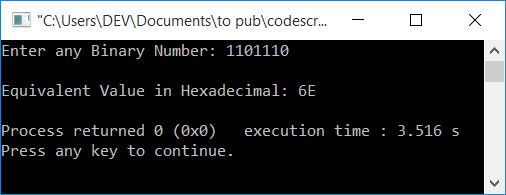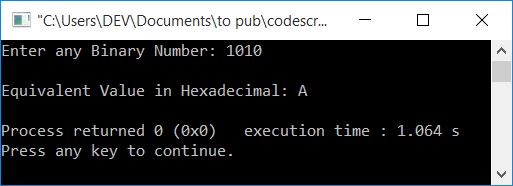- C++ Programming Examples
- C++ Programming Examples
- C++: Hello World
- C++: Get Input
- C++: Print Integer
- C++: Add two numbers
- C++: Add, Sub, Multiply, Div
- C++: Add Digits
- C++: Find Average and Percentage
- C++: Find Arithmetic Mean
- C++: Sum of n Natural Numbers
- C++: Sum of n Numbers
- C++: Square's Area and Perimeter
- C++: Rectangle's Area and Perimeter
- C++: Triangle's Area and Perimeter
- C++: Area and Circumference
- C++: Find Simple Interest
- C++: Fahrenheit to Celsius
- C++: Celsius to Fahrenheit
- C++: Print Prime Numbers
- C++: Reverse a Number
- C++: Swap Two Numbers
- C++: Print Multiplication Table
- C++: Find Factorial of a Number
- C++: Find Factors of a Number
- C++: Find HCF and LCM
- C++: Create a Calculator
- C++: Count Digits in a Number
- C++: First and Last Digit Sum
- C++: Product of Number Digits
- C++: Sum of Squares of Digits
- C++: Interchange Digits of Number
- C++ if-else Programs
- C++: Check Even or Odd
- C++: Check Prime or Not
- C++: Check Alphabet or Not
- C++: Check Vowel or Not
- C++: Check Leap Year or Not
- C++: Check Reverse equals Original
- C++: Check Perfect Number
- C++: Check Palindrome or Not
- C++: Check Armstrong or Not
- C++: Divisibility Test
- C++: Find Labor Wage
- C++: Find Discounted Price
- C++: Find Shipping Charge
- C++: Find Telephone Bills
- C++: Calculate Student Grade
- C++: Largest of Two Numbers
- C++: Largest of Three Numbers
- C++ Number Conversion
- C++: Decimal to Binary
- C++: Decimal to Octal
- C++: Decimal to Hexadecimal
- C++: Binary to Decimal
- C++: Binary to Octal
- C++: Binary to Hexadecimal
- C++: Octal to Decimal
- C++: Octal to Binary
- C++: Octal to Hexadecimal
- C++: Hexadecimal to Decimal
- C++: Hexadecimal to Binary
- C++: Hexadecimal to Octal
- C++ Pattern Programs
- C++: Pattern Programs
- C++: Print Diamond Pattern
- C++: Print Floyd's Triangle
- C++: Print Pascal's Triangle
- C++ Array Programs
- C++: 1D Array Program
- C++: Linear Search
- C++: Binary Search
- C++: Largest Element in an Array
- C++: Smallest Element in an Array
- C++: Find Second Largest Element
- C++: Find Second Smallest Element
- C++: Sum of All Elements
- C++: Multiply All Elements
- C++: Element in Even Position
- C++: Element in Odd Position
- C++: Print Even Numbers in Array
- C++: Print Odd Numbers in Array
- C++: Count Even or Odd Numbers
- C++: Sum of Even or Odd Numbers
- C++: Count Positive, Negative, Zero
- C++: Reverse an Array
- C++: Insert an Element
- C++: Delete an Element
- C++: Merge two Arrays
- C++: Bubble Sort
- C++: Selection Sort
- C++: Insertion Sort
- C++: Common Elements
- C++: 2D Array Programs
- C++: Add Two Matrices
- C++: Subtract Two Matrices
- C++: Transpose Matrix
- C++: Multiply Two Matrices
- C++: 3D Array Programs
- C++ String Programs
- C++: Print String
- C++: Find String Length
- C++: Compare Two Strings
- C++: Copy String
- C++: String Concatenation
- C++: Reverse a String
- C++: Delete Vowels from a String
- C++: Delete a Word from a String
- C++: Count Characters in a String
- C++: Count Words in a String
- C++: Frequency of Words
- C++: Remove Spaces from Strings
- C++: Sort a String
- C++: Uppercase to Lowercase
- C++: Lowercase to Uppercase
- C++: Swap Two Strings
- C++: Check the Anagram or Not
- C++: Capitalize All Words in a String
- C++: Get Numbers from a String
- C++ File Programs
- C++: Read a File
- C++: Write Content to a File
- C++: Append Data to a File
- C++: Read and Display File
- C++: Copy a File
- C++: Merge Two Files
- Count Characters in a File
- C++: Capitalize Every Word
- C++: List Files in Directory
- C++: Delete a File
- C++: Encrypt and Decrypt a File
- C++ Misc Programs
- C++: Print ASCII Value
- C++: Add Binary Numbers
- C++: Generate Random Numbers
- C++: Print a Smiling Face
- C++: Days into Years and Months
- C++: Add Two Numbers using Pointer
- C++: Print Fibonacci Series
- C++: Generate Armstrong Numbers
- C++: Find nCr and nPr
- C++: Get IP Address
- C++: Print Date and Time
- C++: Shutdown and Restart Computer
- C++ Programming Tutorial
- C++ Tutorial
C++ Program to Convert Binary to Hexadecimal
In this article, you will learn and get code for binary to hexadecimal conversion in C++. The program is created with and without using user-defined functions.
But before going through the program, if you are not aware of the steps and formula used for binary to hexadecimal conversion, then you can go there to get all the things you need.
Binary to Hexadecimal in C++
To convert a binary number to hexadecimal in C++ programming, you have to ask the user to enter any number in the binary number system. Then convert it into its equivalent hexadecimal value. Print the hexadecimal value as output.
The question is: write a program in C++ to receive any binary number and print its equivalent hexadecimal value. The answer to this question is given below:
#include<iostream> using namespace std; int main() { int binaryNum, hex=0, mul=1, chk=1, rem, i=0; char hexDecNum[20]; cout<<"Enter any Binary Number: "; cin>>binaryNum; while(binaryNum!=0) { rem = binaryNum%10; hex = hex + (rem*mul); if(chk%4==0) { if(hex<10) hexDecNum[i] = hex+48; else hexDecNum[i] = hex+55; mul = 1; hex = 0; chk = 1; i++; } else { mul = mul*2; chk++; } binaryNum = binaryNum/10; } if(chk!=1) hexDecNum[i] = hex+48; if(chk==1) i--; cout<<"\nEquivalent Value in Hexadecimal: "; for(i=i; i>=0; i--) cout<<hexDecNum[i]; cout<<endl; return 0; }
This program was built and runs under the Code::Blocks IDE. Here is its sample run:

Now supply the binary number input, say 1101110, and press the ENTER key to convert it to its equivalent hexadecimal value as shown in the snapshot given below:

Here is another sample run with user input as 1010:

The dry run of the above program with user input 1010 goes like this:
- Initial values, hex = 0, mul = 1, chk = 1, i = 0
- When the user enters 1010 as a binary input, then 1010 gets initialized to binaryNum. So binaryNum=1010
- Now the condition of the while loop, binaryNum!=0 or 1010!=0, evaluates to be true. Therefore, program flow goes inside the loop.
- binaryNum%10 or 1010%10 or 0 is set to rem. So rem=0
- hex+(rem*mul) or 0+(0*1) or 0 gets initialized to hex. So hex=0
- Now the condition of the if statement, that is, chk%4==0 or 1%4==0, evaluates to be false. As a result, program flow does not goes inside the if's body, but rather to else's body.
- And mul*2 or 1*2 or 2 gets initialized to mul. Now mul=2
- And then the value of chk gets incremented. Now chk=2
- And at last (the last statement of of while's body), binaryNum/10 or 1010/10 or 101 gets initialized to binaryNum. Now binaryNum=101
- Now the program flow goes back and evaluates the condition of the while loop again with the new value of binaryNum. Again, the condition 101!=0 is evaluated to be true. Therefore, again, program flow goes inside the loop.
- Process the code until the while loop's condition evaluates to false.
- On continuing the process, here are the values we'll get after each evaluation of the while loop:
- After the first evaluation
rem=0, hex=0, mul=2, chk=2, binaryNum=101 - After a second evaluation
rem=1, hex=2, mul=4, chk=3, binaryNum=10 - After the third evaluation
rem=0, hex=2, mul=8, chk=4, binaryNum=1 - After the fourth evaluation, this time the condition of the if statement, that is, chk%4==0 or
4%4==0 or 0==0, evaluates to be true.
rem=1, hex=0, hexDecNum[0]=A, mul=1, chk=1, i=1, binaryNum=0
- After the first evaluation
- Now, after the fourth evaluation, the value of binaryNum is 0. As a result, the condition binaryNum!=0 or 0!=0 evaluates to false. Therefore, program flow does not goes inside the loop this time. It means that the while loop's evaluation is completed.
- If the condition chk!=1 or 1!=1 is evaluated after the while loop, it is now false.
- Now the program flow goes to the next if's condition, and evaluates its condition, that is, chk ==1 or 1 ==1 , which is evaluated to be true. So the value of i gets decremented. Now i=0
- Using a for loop, that starts from the value of i and continues until its value becomes equal to 0, print the value hexDecNum[] one by one.
- Because the value of i is 0, the loop only evaluates at once. As a result, when the value of hexDecNum[0] is printed, it equals A.
Binary to hexadecimal conversion in C++ using a user-defined function
Here is another program that also converts any binary number entered by the user at run-time into its equivalent hexadecimal value, but using a user-defined function called BinaryToHexaDec().
#include<iostream> using namespace std; void BinaryToHexaDec(int bin); int i=0; char hexDecNum[20]; int main() { int binaryNum; cout<<"Enter any Binary Number: "; cin>>binaryNum; BinaryToHexaDec(binaryNum); cout<<"\nEquivalent Value in Hexadecimal: "; for(i=i; i>=0; i--) cout<<hexDecNum[i]; cout<<endl; return 0; } void BinaryToHexaDec(int bin) { int hex=0, mul=1, chk=1, rem; while(bin!=0) { rem = bin%10; hex = hex + (rem*mul); if(chk%4==0) { if(hex<10) hexDecNum[i] = hex+48; else hexDecNum[i] = hex+55; mul = 1; hex = 0; chk = 1; i++; } else { mul = mul*2; chk++; } bin = bin/10; } if(chk!=1) hexDecNum[i] = hex+48; if(chk==1) i--; }
This program will produce the same output as the previous program.
The same program in different languages
« Previous Program Next Program »